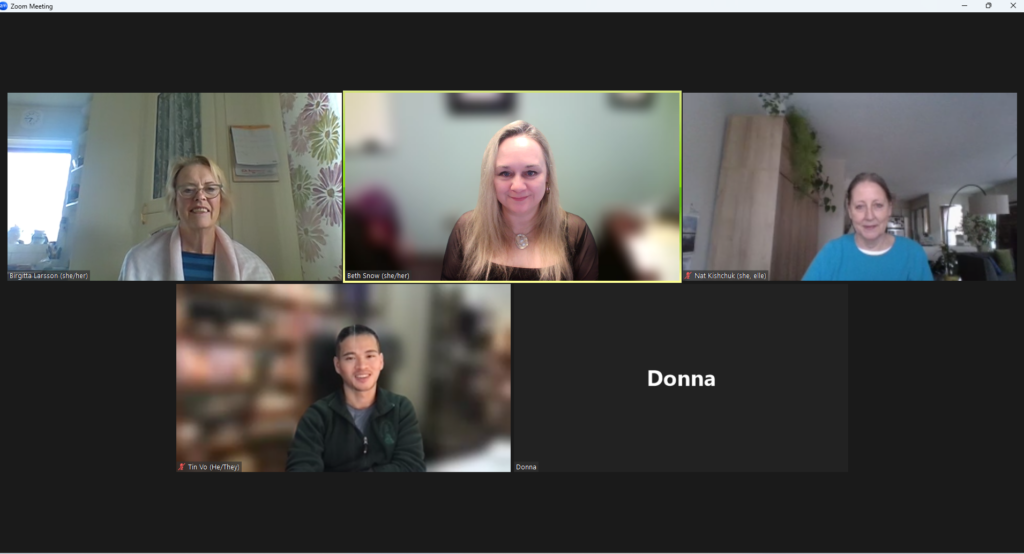Hello, AEA365 community! Liz DiLuzio here, Lead Curator of the blog. This week is Individuals Week, which means we take a break from our themed weeks and spotlight the Hot Tips, Cool Tricks, Rad Resources and Lessons Learned from any evaluator interested in sharing. Would you like to contribute to future individuals weeks? Email me at AEA365@eval.org with an idea or a draft and we will make it happen.

Hello from the Ethics Guidance Working Group of the Canadian Evaluation Society (CES). We are excited to tell you about the recently adopted CES Ethics Guidance, a foundational document that advances ethical considerations in evaluation in Canada, and can also serve as a valuable resource for evaluators globally.
Values-Based Ethics Guidance
CES first published an Ethics Statement over 25 years ago. Ethics is one of the three pillars of evaluation in Canada, along with Competencies for Canadian Evaluators and Evaluation Standards. Recently there has been increased attention to ethics frameworks among many international evaluation associations. This changing landscape led to a review of CES’ approach to evaluation ethics that began in 2017 and culminated in 2024 with the adoption and release of the Ethics Guidance.
Early on we confirmed that a deontological, rules-based approach that prescribes what evaluators should – or should not – do is no longer appropriate for our members, considering the complex contexts and diverse evaluation practice settings in which they work.
Instead, the refreshed Ethics Guidance emphasizes the need for sensitivity to context and culture, and recognizes the dynamic nature of ethical decision-making. It is based on three core professional values that evaluators enact to do their work well:
- Upholding the rights and well-being of persons, Peoples, and all of nature;
- Seeking truth, honesty, and transparency; and
- Being responsible to all engaged in or affected by their evaluation work.
These values recognize not only the legal and moral rights of all persons and Peoples, but also the value of ecological justice, by addressing factors that underlie environmental racism, biodiversity loss, and climate change.
Our revised approach marks a significant step in embedding values at the core of ethical evaluation practice and we are proud to be pathfinders in this area.
Applying the Core Values: Ethical Reflections
When an evaluator incorporates these values into practice, they are:
- Woven into reflective thinking to determine the most ethically sound decisions for a given situation and context.
- Used to frame ethical decision making as context-driven, rather than governed by rigid absolutes of right or wrong.
- Applied to all evaluation activities.
Through our review and consultations we found that supporting evaluators to recognize and navigate potentially conflicting values helps them discover an ethical path forward. Under the CES Ethics Guidance, evaluators start by explicitly identifying all sets of values at play, whether (or not) they align with CES’ core professional values. Through guided reflective practice, evaluators consider the different values, the alternative courses of action, and the likely outcomes of each.
All CES members must agree to adhere to the Ethics Guidance as a condition of CES membership. Demonstrating ethical practice will soon be a mandatory competency for Credentialed Evaluator (CE) applicants.
Rad Resources
The CES Ethics Guidance is available to all who are interested in ethical evaluation practice. You will also find tools and resources added over time to support its implementation.
We encourage you to take a look and consider how the CES Ethics Guidance might inform your own evaluation practice.
Do you have questions, concerns, kudos, or content to extend this aea365 contribution? Please add them in the comments section for this post on the aea365 webpage so that we may enrich our community of practice. Would you like to submit an aea365 Tip? Please send a note of interest to aea365@eval.org . aea365 is sponsored by the American Evaluation Association and provides a Tip-a-Day by and for evaluators. The views and opinions expressed on the AEA365 blog are solely those of the original authors and other contributors. These views and opinions do not necessarily represent those of the American Evaluation Association, and/or any/all contributors to this site.
